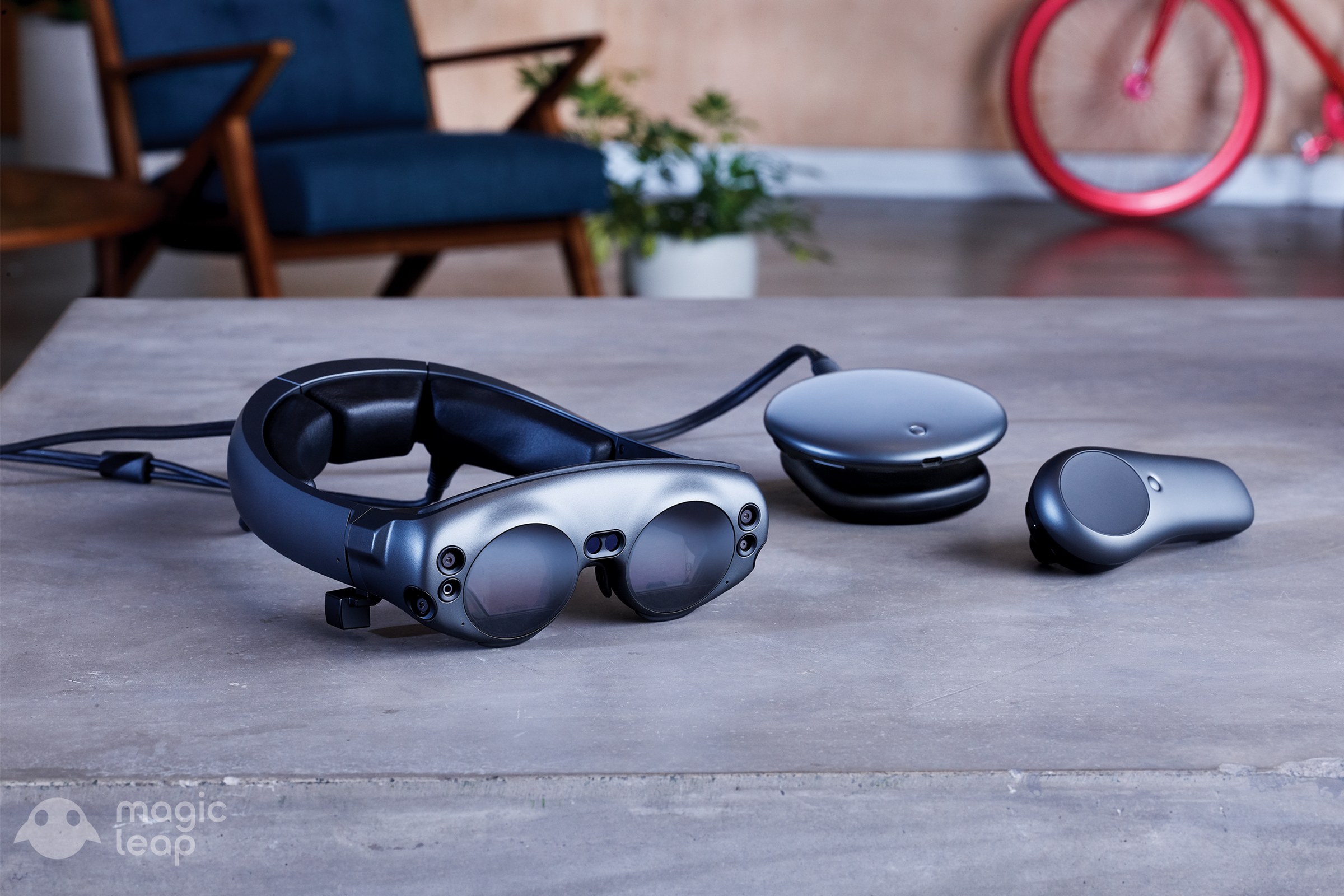Magic Leap Augmented Reality Headset Hits The Market
The long awaited and much hyped Magic Leap One AR Headset is now available to buy in the US. The set-up consists of a lightweight headset and handheld control. The Magic Leap is connected to a small computer which can be clipped on to the user for portability.

The starting price for the Magic Leap is $2,295 (€2,010). The high cost will price the average consumer out of making a purchase. However, the Magic Leap is aimed towards AR developers and content creators. In comparison to its nearest rival in the developers AR headset market, the Microsoft HoloLens, which starts at $3000 (€2,627); it is considerably cheaper. The Magic Leap also boasts a slightly larger field-of-view than that of the Microsoft HoloLens. The built-in rechargeable battery offers “up to 3 hours” of use, which is similar to its competitor. It comes with 8 GB of RAM and 125 GB of internal storage.
The glasses sensor can detect real world objects and have the developers creations interact with them in real time. “The sensor suite on Magic Leap One Lightwear makes digital objects contextually aware. So when you make digital penguins walk off the edge of the coffee table, they fall off the edge of the coffee table, just like real penguins would (no penguins were harmed in the making of Magic Leap One).” – Magic Leap.
Early reviews of the Magic Leap One have turned up mixed results among industry experts. The hype and promotion that was surrounding the product always meant that it faced an uphill battle to impress. The general consensus seems to be that the Magic Leap is a step in the right direction for AR and MR; but not the ‘leap’ in the right direction we were all hoping for.
“It’s still a fascinating, wonderful illusion — maybe the best I’ve seen in one of these headsets, and far cooler than watching an AR model through an iPhone screen. But it’s not the kind of revolutionary (or downright magical) advance that Magic Leap has teased for years. It’s a better version of a thing I’ve tried before, and that thing is still very much a work in progress.” –Wrote Adi Robertson for The Verge.
